In just a few months, the Royal Observatory Greenwich will crown the winners of Astronomy Photographer of the Year. To tease the momentous occasion, they have shared the shortlist selection from over 4,000 entries by amateurs and professional photographers hailing from 64 countries around the world. The competition is organized by the Royal Observatory Greenwich, with Liberty Specialty Markets and BBC Sky at Night Magazine, and it is now in its 15th year.
There are nine main categories in the competition: people and space, skyscapes, aurorae, our Sun, the Moon, objects in the Solar System, stars and nebulae, galaxies, and an award for people 16 years old or younger. Each of them will have a winner, a runner-up, and a highly commended prize.
There are also two special prizes: the Sir Patrick Moore Prize for Best Newcomer and the Annie Maunder Prize for Image Innovation. The latter is awarded for the best-processed images from open-source data from established telescopes. Among the winning entries, one will be picked to be the overall winner, a talented astrophotographer who will take home a £10,000 prize.
As always, we can only share a small selection of the shortlist with the photographers’ captions, so here are our favorites.
People & Space

Pandora’s Box – The Milky Way viewed behind a graffiti of Pandora by Wild Drawing (WD), a Balinese artist on the Greek island of Naxos.
IMAGE CREDIT: © DEREK HORLOCK
Aurorae
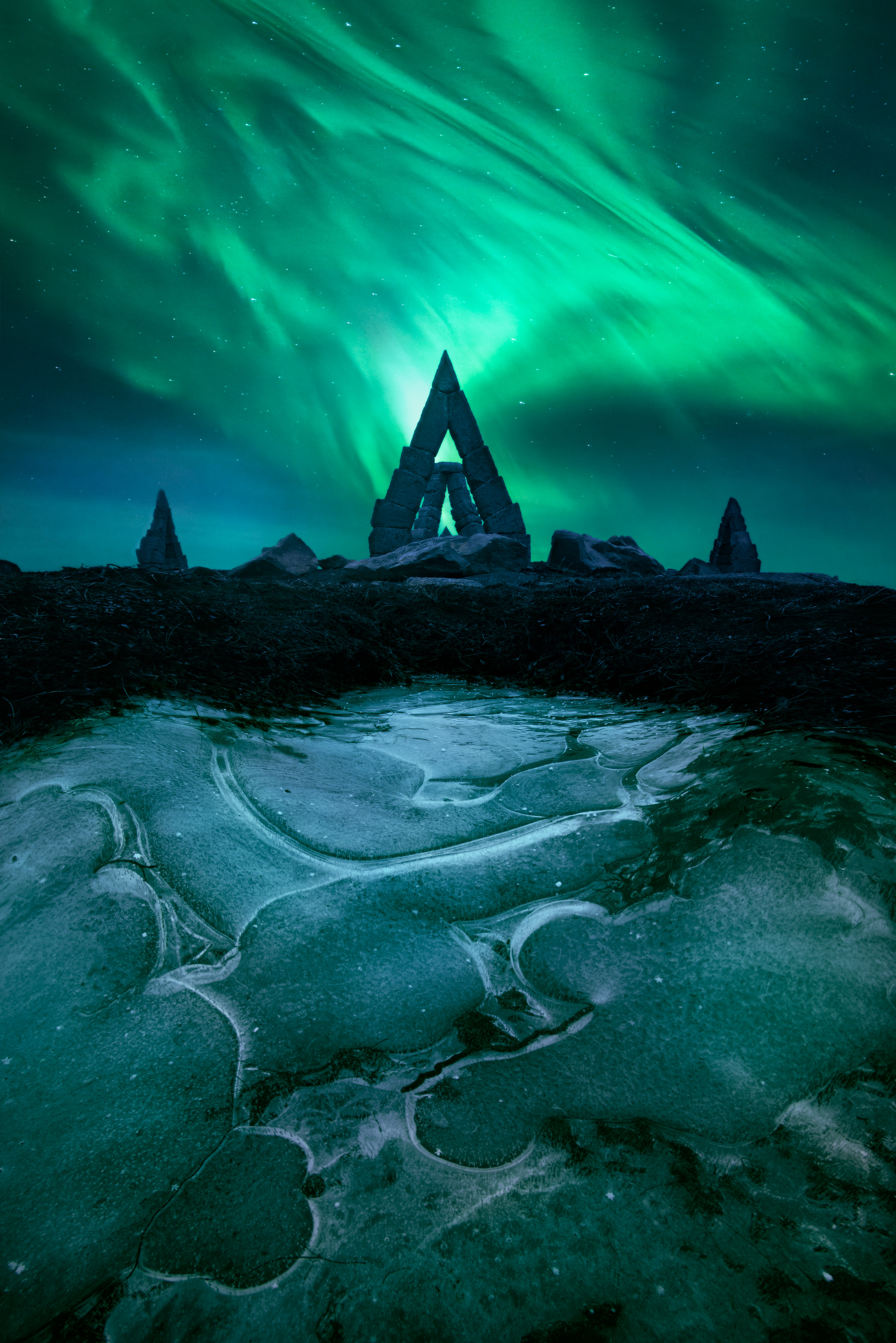
Arctic Gates – The Northern Lights over the mammoth sundial Arctic Henge, which is inspired by Norse mythology.
IMAGE CREDIT: © DANIEL VIÑÉ GARCIA
Our Sun
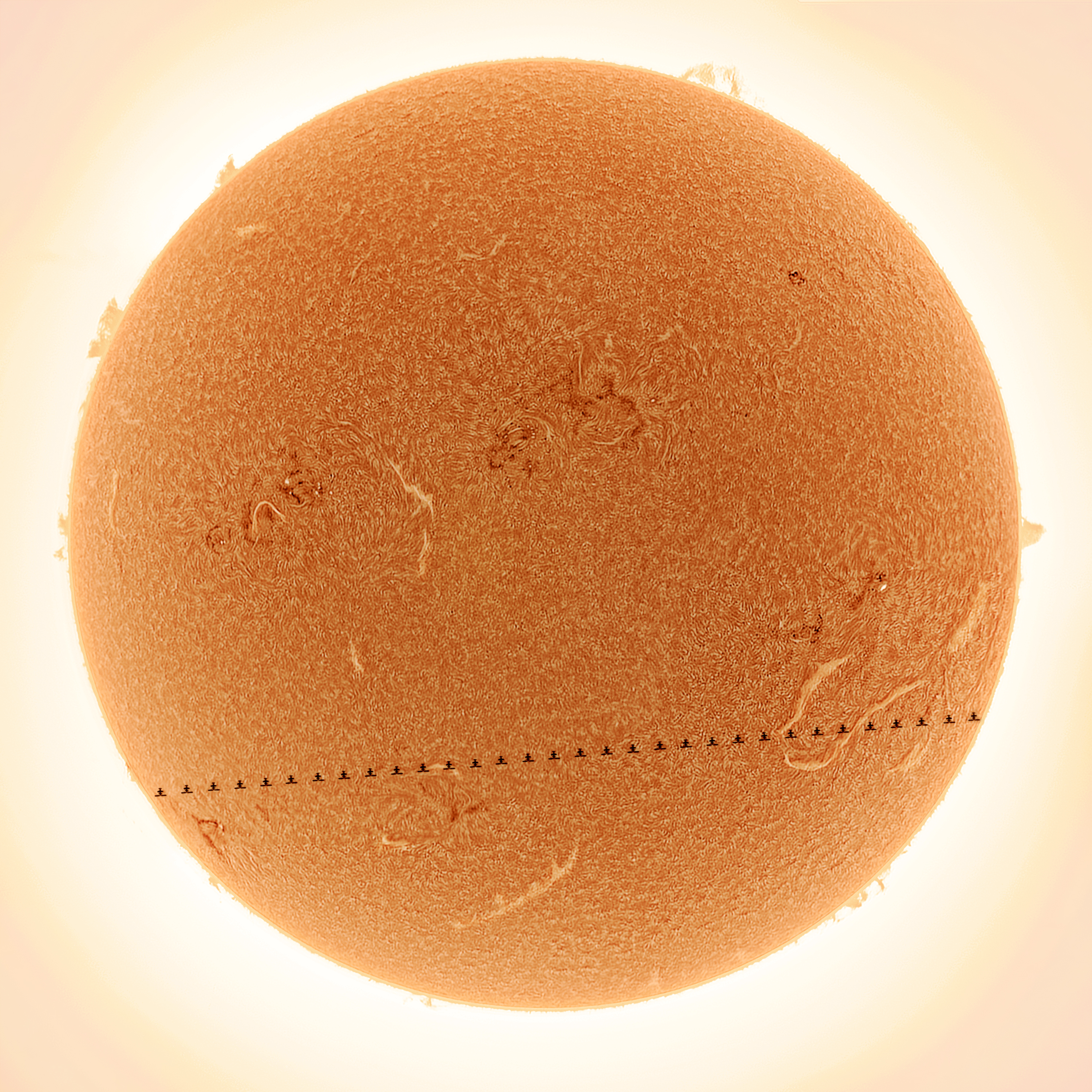
China Space Station Transits Active Sun – The Sun photographed showing the transit of the China Space Station (CSS). The image of the CSS was produced by selecting the nine clearest photos from captured video frames.
IMAGE CREDIT: © LETIAN WANG
Our Moon
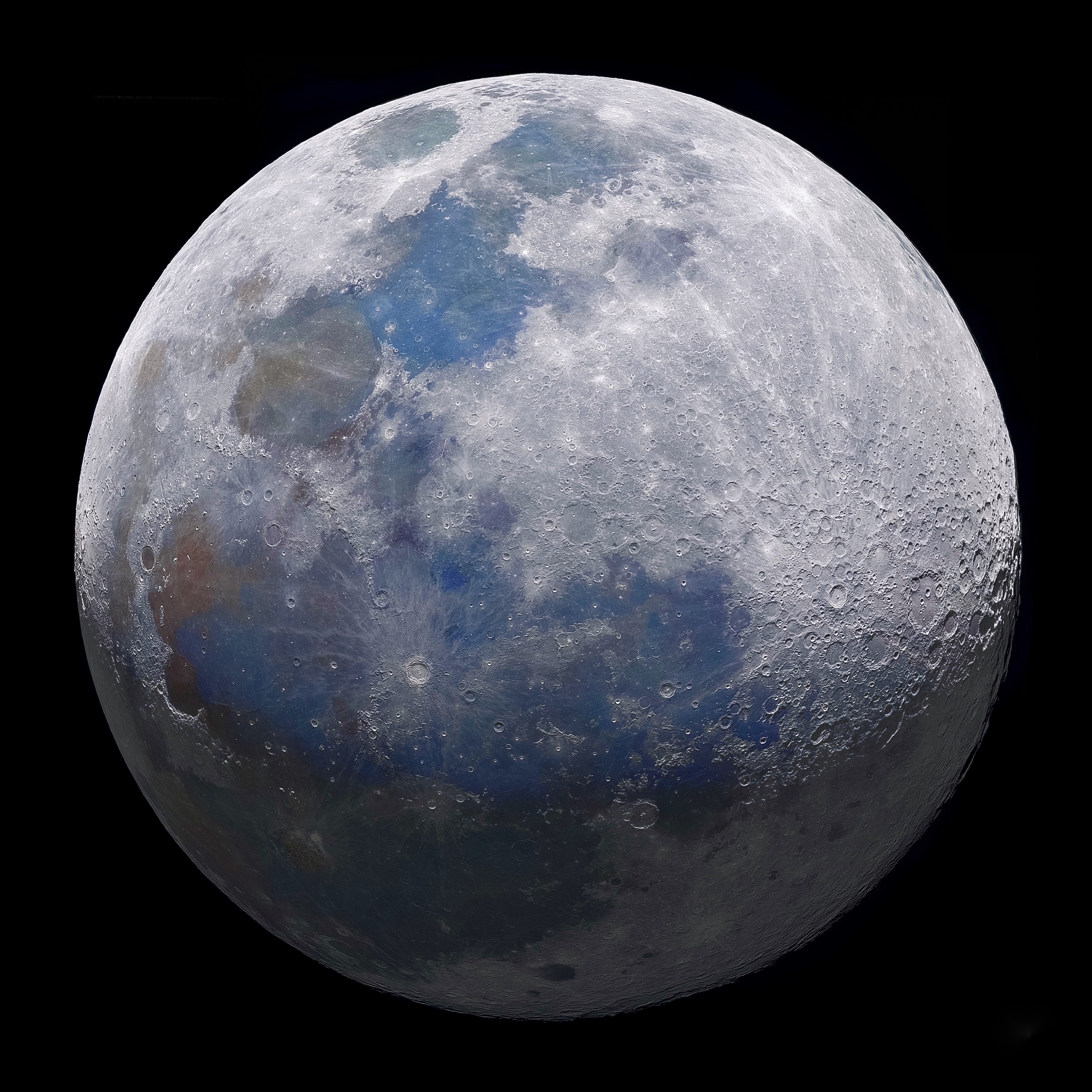
Ball of Rock – This is a composite of an image of the Moon 78 percent illuminated and an image of the full Moon. Assembling close-up shots to create a mosaic of the whole Moon is complex as the perspective changes slightly during a lunar orbit.
IMAGE CREDIT: © RICH ADDIS
Stars & Nebulae
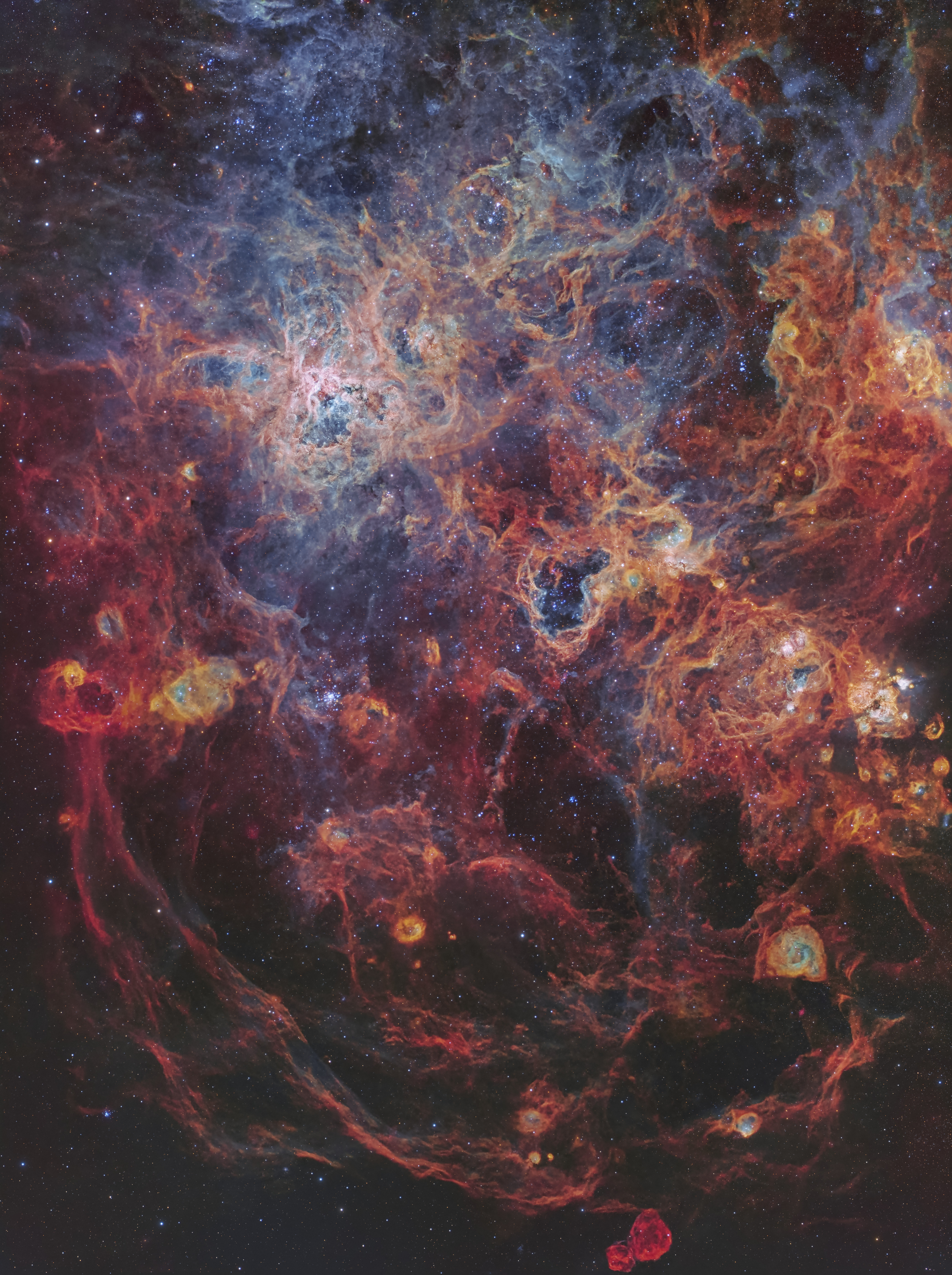
The Majestic Tarantula Nebula – Capturing the Tarantula Nebula’s intricate details and vibrant hues is a challenging task that requires precision and patience. Narrowband filters have been used for the nebulosity and RGB filters for the stars, so they are in natural colors.
IMAGE CREDIT: © STEEVE BODY
Galaxies

NGC 3521: Marquise in the Sky – NGC 3521, a flocculent intermediate spiral galaxy, is surrounded by dust and has numerous star-forming areas and a luminous center. Rarely seen hydrogen alpha jets have been captured.
IMAGE CREDIT: © MARK HANSON; MIKE SELBY
Skyscapes
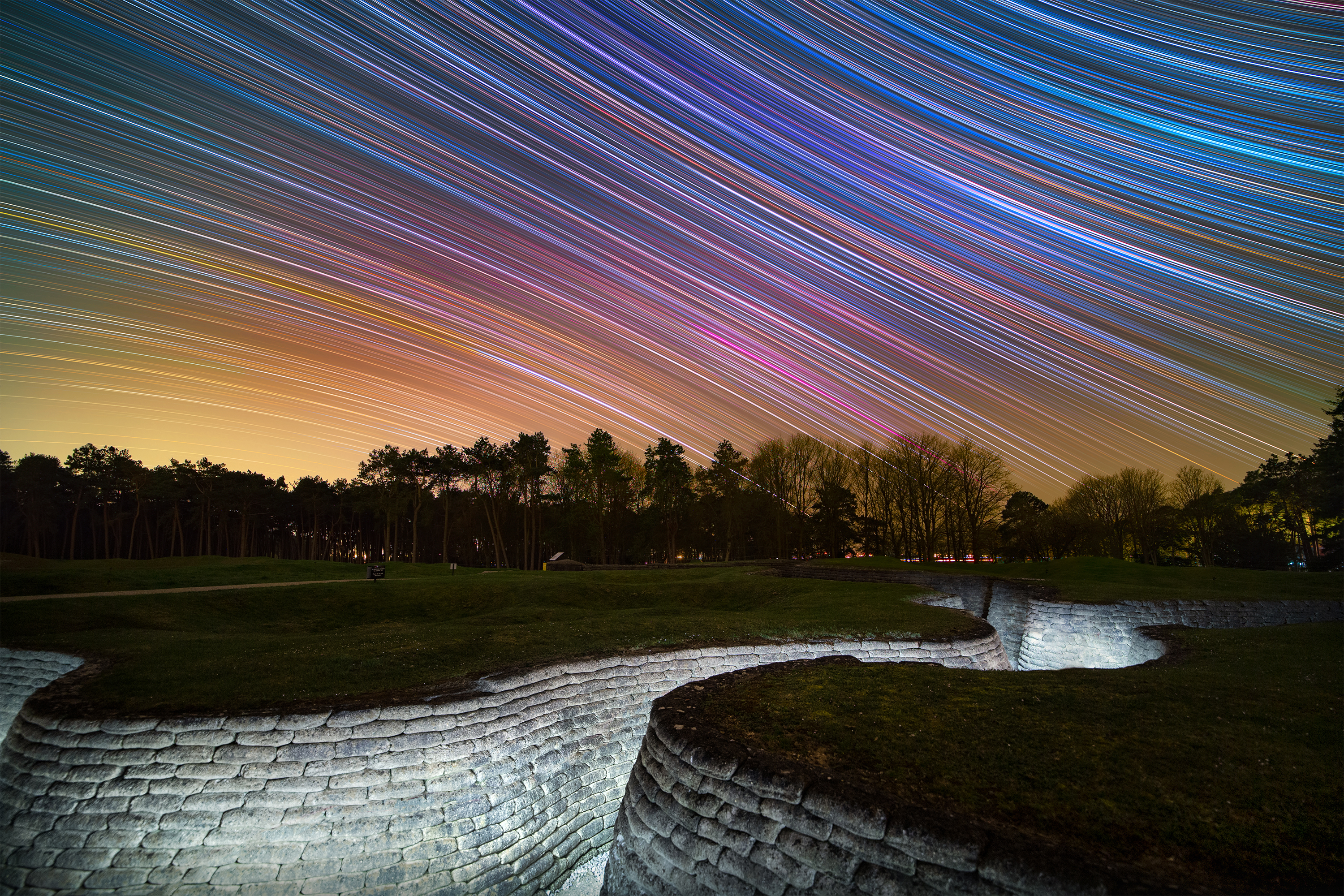
Celestial Equator Above First World War Trench Memorial – Star trails above the preserved First World War trenches in Canadian National Vimy Memorial Park, Northern France. Taken over five hours, the camera captured the rotation of the sky revealing the colorful stars.
Image Credit: © Louis Leroux-Gere
A larger selection of the shortlisted images is available on the Royal Observatory of Greenwich website.
Source Link: Check Out These Breathtaking Entries In The Astronomy Photographer Of The Year Competition 2023